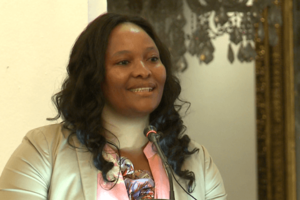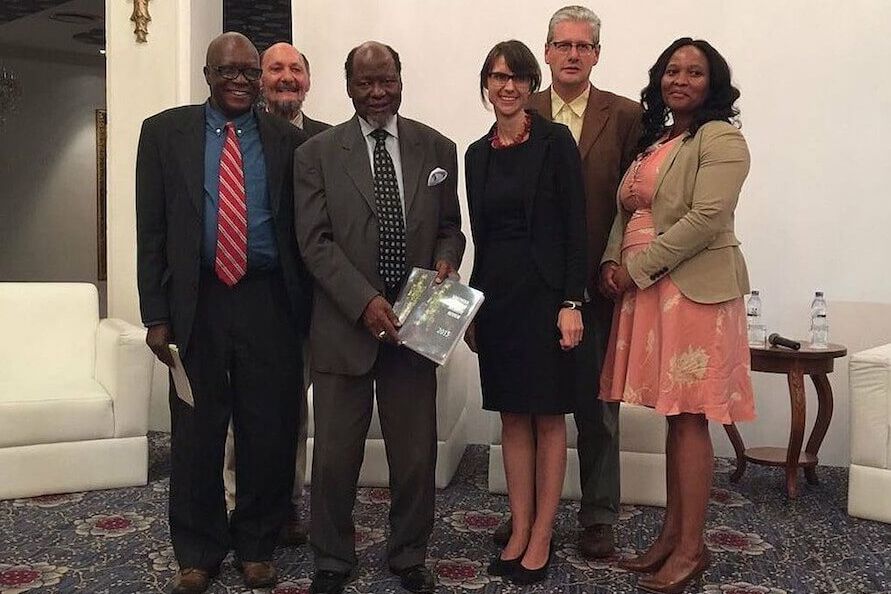Mediation of African conflicts needs to be more inclusive of all groups, from armed bandits to women's associations
Denise Juvane from FES Mozambique spoke to Dr Gladys Mokhawa, a Senior Lecturer in the Department of Political and Administrative Studies of the University of Botswana and an active member of the Southern African Defence and Security Management (SADSEM) Network.
Why has it been so difficult in Africa, specifically, to transform conflict sustainably?
It is indeed true that Africa has been considered a continent of protracted conflicts, given the sheer volume of armed conflicts the continent has experienced. More worrying is that conflict resolution efforts have been fraught with challenges. Chief among these have been the uncooperative and intransigent parties during mediation, unskilled mediators, and a lack of funding for mediation efforts. But what I find particularly frustrating the difficulty in transforming conflicts in a sustainable manner.
This may be in part because mediation efforts fail to consider specific cultural milieus of the parties and their conflict. Tamara Duffey noted that the predominant discourse of conflict resolution in peacekeeping literature "has principally relegated cultural specificity to the background." Also, conflict resolution efforts are often very exclusionary. This is very dangerous particularly in cases where exclusion was part of the reasons for war.
We are actually excited that we will be having a Security Dialogue this October organised by FES Maputo together with SADSEM, under the theme "Mediation as a Tool for Conflict Transformation: Its Use, Effectiveness and Lessons". We hope we will be able to explore avenues of incorporation during conflict resolution processes. Hopefully, we will be able to offer alternatives, nuances and reinterpretation of conflict resolution mechanisms that will ensure transformation and sustainability.
"African solutions for African problems" has been the slogan of AU interventions. But experiences show that finding local entry points for conflict settlement remains a challenge. What is missing?
Although appealing, the notion of African Solution for African Problems (ASAP) has become something of a rhetorical device. It is seen as legitimizing and justifying inaction by African leaders. Some argue that ASAP is characterized by endless referrals and excuses for abuses by African leaders. Others question whether ASAP is not just a statement of intent. Compounding the problem are the crises that litter the continent. The crises in Libya, Somalia, Darfur, the DRC and Chad call into question the utility of ASAP. That notwithstanding, ASAP has not been an unmitigated failure. Some instances have seen notable successes, for example the peacekeeping missions in West Africa, Liberia and Sierra Leone.
I prefer not to demonize ASAP for its ineffectiveness, nor accuse the international community for exporting liberal ideas that have no local content. Rather, I think we need a useful framework where local ownership is coupled with international standards. This could reconcile local tensions with the broader imperatives of sustainable peacebuilding. This I think will produce some kind of hybridization. This thinking underpins the well established argument that the complexity of Africa’s problems requires a collective and collaborative approach, based on a range of partnerships at both international and continental levels.
How could approaches to conflict transformation be made more inclusive?
A broad-based participation by citizens is essential to address the exclusionary nature of conflict transformation. All groups should be included in the peace process: from armed bandits to women’s associations. In addition, incentive structures should not only favour ex-combatants, otherwise we risk incentivizing violence.
"We need a useful framework where local ownership is coupled with international standards. This could reconcile local tensions with the broader imperatives of sustainable peacebuilding."
Furthermore, the mediation and resolution of Africa’s conflicts needs to be seen as a concern for the whole continent, not just for the countries directly concerned in each case. And there needs to be more investment in documenting the conflicts and the resolution process, as well as building better links between academy and practitioners. This can actively contribute to the discourse by providing clear strategies for states, grounded on evidence-based results.
The SADSEM Network, and this year's conference specifically, seeks to identify best practices around conflict resolution, management and mechanisms. The SADSEM Network prioritises work with senior experts and young intellectuals who not only add value to the discussion but also contribute to the network and keep it relevant and effective.
At this year's conference the team will look at the conflicts of the Democratic Republic of Congo, Nigeria and Boko Haram, and Somalia, as practical case studies into why achieving peace continues to be a problem on the African continent. The event also aims to create spaces for open debates on African mediation and its strategies.
###
This year, the Southern African Security Dialogue will take place in Gaborone, Botswana, 17-18 October 2018. For more information on the Security Dialogue and the work by FES and the SADSEM network contact FES Mozambique.






